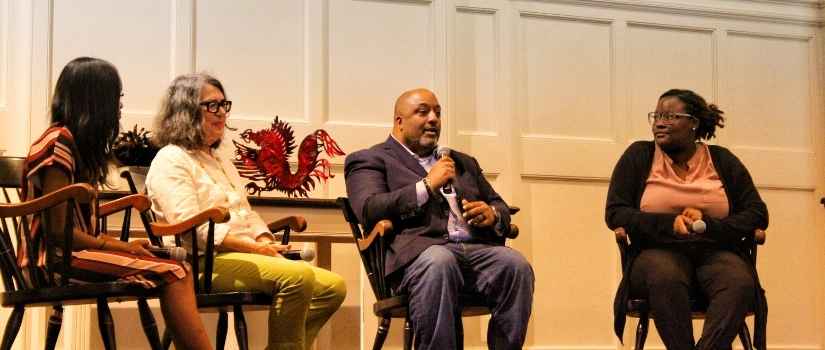Henry Hayne Day
University of South Carolina students, faculty and staff may know little about the first Black student to enroll at the University of South Carolina.
October 7, marked 150 years since Henry Hayne enrolled at the university’s medical school and became the school’s first Black student, making it the first publicly funded university in the South to integrate after the Civil War.
“If we are not going to repeat history we need to know that they existed,” said Carl Solomon, whose father James L. Solomon Jr., was one of the three students who helped desegregate the university for the second time in 1963.
A celebration of the 150th anniversary of the university’s first desegregation during Reconstruction was held at Rutledge College Chapel on Oct. 7. It was organized by the Association of African American Students.
The day included the presentation of "Radical Carolina," an eight-minute documentary by filmmaker Betsy Newman. She is producing a documentary film about USC during Reconstruction.
“It’s terribly important for all of us to know the history so we know what’s possible,” said Newman. “South Carolina was at the heart of the struggle.”
Following the film, a panel discussion of Solomon, senior Caley Bright, alumunae Djuanna Brockington and Lyric Swinton focused on the Reconstruction period.
In 1873, the university became the only state-supported Southern university to fully integrate during Reconstruction that followed the Civil War. By 1876, the student body was predominately Black. After Wade Hampton was elected governor, the university was closed in 1877. It reopened in 1880 to White students only. It did not integrate again until 1963.
Bright, a senior and president of the student chapter of National Association for the Advancement of Colored People, spoke during a panel discussion and mentioned she had never been taught about Hayne or what was happening during the period of Reconstruction on campus.
"We don't learn that on the first day of the university," Bright said. "I teach a University 101 course here and I've never seen his name in our cirruculum. It makes you think you don't where you came from."
